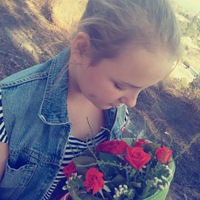
3 тапсырма ОҚЫЛЫММәтінді оқып, көп нүктенің орнына «бай», «байлық» деген сөздерді тиісті
тұлғасында қойыңыз да, мәтіннің астындағы тест тапсырмаларын орындаңыз.Ертеде бір жас жігіт өзінің кедейлігін айтып, әрдайым мұңын шағудан жалықпайды екен.Шіркін-ай, егер менің (1)... көп болса, жақсы өмір сүрер едім, — деп зарлауын қоймапты. Бір күні жігіттің лашығының алдынан қарт тас қашаушы өтіп бара жатып, зарлап отырған жігіттің қасына келеді.Саған не болды сонша жыланып? Сен нағыз (2)... адам емессің бе? – дейді.Мен (3)... ба? – деп жігіт таң қалады. – Ол қандай байлық?Сенің көздерің ше? Бір көзіңді біреуге қаншаға сатып берер едің? – деп сұрайды қарт.-Оның не?! – деп шошып кетеді жігіт, — көзімді ешқандай (4).. айырбастамаймын.Ал енді екі қолың мен аяғыңның біреуін алтынға айырбастар ма едің?Жоқ, ешқайсысын да алтынға айырбастамаймын, — дейді жігіт.Міне, көрдің бе, сен өте бай адамсың. Адамның ең үлкен (5)... — күш-қуаты мен денсаулығы, —дейді қарт– Оны ақшаға сатып ала алмайсың. Қарт осыны айтады да, жөніне кетеді.«тас қашаушы» сөзінің аудармасын табыңыз.строительсапожник угольщикd) камнетесЖігіттің негізгі қателігі неде?өмірді тым көңілді өткізуіндеөте сараң болуындас) өзінде барын дұрыс бағаламауындаd) жалқау болуындаМәтінге сәйкес мақалды белгілеңіз.Күлме досыңа, келер басыңа.Аурудың жақсысы жоқ, Дәрінің тәттісі жоқ.с) Бірінші байлық – денсаулық.d) Ақылдан артық байлық жоқ.Мәтіндегі негізгі ойды көрсетіңіз.Менің байлығым көп болса, жақсы өмір сүрер едім.Адамның ең үлкен байлығы — күш-қуаты мен денсаулығыСаған не болды сонша жыланып?d) Ойнап сөйлесең де, ойлап сөйле.Мәтінде қандай синоним сөздер бар?ақша, айырбаскедейлік, байлық жылану, зарлауd) шошу, таң қалу 0
0
 0
0
Ответы на вопрос
 Внимание! Ответы на вопросы дают живые люди. Они могут содержать ошибочную информацию, заблуждения, а также ответы могут быть сгенерированы нейросетями. Будьте внимательны. Если вы уверены, что ответ неверный, нажмите кнопку "Пожаловаться" под ответом.
Внимание! Ответы на вопросы дают живые люди. Они могут содержать ошибочную информацию, заблуждения, а также ответы могут быть сгенерированы нейросетями. Будьте внимательны. Если вы уверены, что ответ неверный, нажмите кнопку "Пожаловаться" под ответом.

Ответ:
Ол алдап жатыр ма? Сіз алдадыңыз ба, жоқ па, әлде сіз үздік студентсіз бе? Күнделікте ескертпесіз ақылдысың ба, әлде жақсы баласың ба?Сен жақсы жігітсің бе, әлде хоришист нашар студент бола аласың ба?Ол қазір алдайды, бұл сұрақ емес?Сен ақылдысың ба әлде хабаршысың ба, сен бола аласың ба? Сақтау керек пе?Жарайды, мұнда ештеңе жоқ, ол бәрі немесе интернеттен бәрін көшіріп алған папа, бұл сұрақ емес пе?
Объяснение:
Надеюсь что правильно с тётей составляли она учитель казахского и казахской нации.Ставьте лайки и звёзды мне прощу !!
 0
0
 0
0

Introduction
In the given text, the author discusses the concept of "bai" or "bay" and presents a test with questions related to the text. The text describes a young boy who always behaves well and is admired by others. The boy encounters a stone thrower who challenges him, and the boy responds with kindness. The stone thrower is impressed by the boy's behavior and asks him several questions. The boy answers the questions confidently, demonstrating his wisdom and maturity. The stone thrower acknowledges the boy's exceptional qualities and praises him. The text also mentions the importance of health and the power of wealth. Additionally, the author asks the reader to find the meaning of the phrase "tas qashausy" (stone thrower) and provides a short poem.
Meaning of "bai" or "bay"
In the given text, the words "bai" or "bay" are used to describe the exceptional qualities and behavior of the young boy. These words signify that the boy is well-mannered, wise, and virtuous. The author uses these words to emphasize the boy's positive character traits and his ability to handle challenging situations with grace and kindness.
The Boy's Response to the Stone Thrower's Questions
The stone thrower asks the boy several questions, and the boy responds confidently. Here are the boy's answers to the stone thrower's questions:
1. The stone thrower asks, "What would happen if I threw more stones at you? Would you still lead a good life?" The boy replies, "No matter how many stones you throw, I will not abandon my good life."
2. The stone thrower asks, "Are you not an ordinary person?" The boy responds, "Am I not a human being?"
3. The stone thrower asks, "Am I a stone thrower?" The boy hesitates and then says, "You are a stone thrower."
4. The stone thrower asks, "What about your hands and feet? Do you not separate one from the other?" The boy confidently replies, "No, I do not separate any of them."
5. The stone thrower praises the boy, saying, "Look at you, you are a very noble person. The greatest wealth of a person is their strength and health."
Meaning of "tas qashausy" (stone thrower)
The phrase "tas qashausy" in Kazakh means "stone thrower" in English. The stone thrower in the text represents a challenging or negative influence in the boy's life. The encounter with the stone thrower tests the boy's character and allows him to demonstrate his virtues and wisdom.
Synonyms in the Text
The text includes several synonyms that can be identified:
- "Aqsha" (wealth) and "ayyrbastau" (wealth) - "Kedeylik" (nobility) and "baylyk" (nobility) - "Jylanu" (health) and "zharlau" (health) - "Shoshu" (hesitate) and "tań qalu" (hesitate)
These synonyms add variety and richness to the language used in the text.
Poem in the Text
The text also includes a short poem:
"Külme dosına, keler basına. Aurudıń jaqsy-sy jaq, Däriniń tättisi joq."
This poem encourages the reader to be a good friend and have a positive attitude. It suggests that a good friend brings joy and happiness, and there is no sweetness in bitterness.
Please let me know if there is anything else I can help you with!
 0
0
 0
0
Похожие вопросы
Топ вопросов за вчера в категории Қазақ тiлi


Последние заданные вопросы в категории Қазақ тiлi
-
Математика
-
Литература
-
Алгебра
-
Русский язык
-
Геометрия
-
Английский язык
-
Химия
-
Физика
-
Биология
-
Другие предметы
-
История
-
Обществознание
-
Окружающий мир
-
География
-
Українська мова
-
Информатика
-
Українська література
-
Қазақ тiлi
-
Экономика
-
Музыка
-
Право
-
Беларуская мова
-
Французский язык
-
Немецкий язык
-
МХК
-
ОБЖ
-
Психология
-
Физкультура и спорт
-
Астрономия
-
Кыргыз тили
-
Оʻzbek tili






















